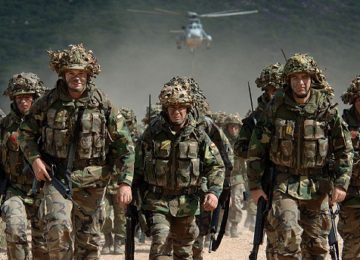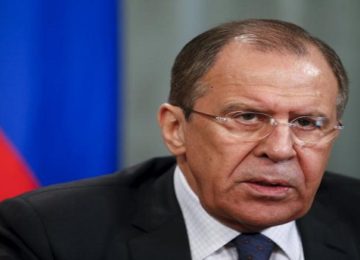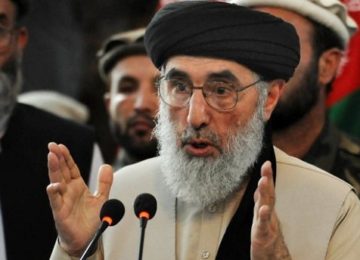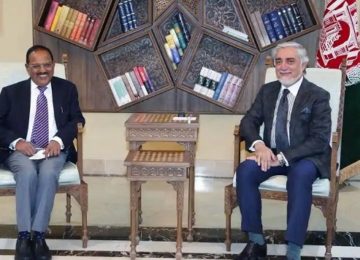January 17, 2019.
Taliban have refused to continue with peace talks if US forces continue being stationed in Afghanistan. A few days ago, they cancelled talks with Zalmay Khalilzad for prospective peace over differences in agenda. A person drawing mixed feelings from Afghanistan and Pakistan, a country with high stakes in peace for Afghanistan-Khalilzad’s appointment as President Trump’s special adviser to Afghanistan drew a lot of ire from a cross section of people from both sides of the border. In 2017, giving an interview to CNN, he spoke about increasing the number of US troops fighting in Afghanistan up to 5000, besides developing an all-encompassing strategy to address the internal issues of Afghanistan.
His views sadly reflected upon the bankruptcy of any creative and original approach to handle a bad situation. The troops were duly increased with recent talks of their withdrawal having failed to make any difference in the ongoing situation. US in the longest war of her history has failed to implement any strategy to “improve the internal situation.” It has stretched longer than the Spanish American War, the Korean War, and both World War I and World War II as well as the Spanish-American War. So when Khalilzad puts forward an opinion that has not worked since post invasion 9/11 one can wonder how that is going to work now. According to an excellent piece by Doug Bandow for The American Conservative states, “In theory the allies have trained a large Afghan security force, both military and police, but estimates of the number of “ghost” personnel, existing only for payroll purposes, range up to a third.” Afghan government is seen to be widely corrupt as well as an American puppet Taliban refuse to deal with.”
So far as Pakistan concerned, Khalilzad has often been blunt is putting the blame of Afghan woes at Pakistan’s doorsteps. A consensus has been built up in carefully and craftily in Washington that Pakistan is part of the problem not the solution. The unsavory truth is, it is Washington’s misguided policies that have been the problem. Unless and until this is acknowledged and then sensible policies developed, the situation in Afghanistan will just become worse. Garikai Chengu, a research scholar in Harvard writes, “Much like Al Qaeda, the Islamic State (ISIS) is made-in-the-USA, an instrument of terror designed to divide and conquer the oil-rich Middle East and to counter Iran’s growing influence in the region. Robin Cook told the House of Commons that Al Qaeda was unquestionably a product of Western intelligence agencies. Mr. Cook explained that Al Qaeda, which literally means an abbreviation of “the database” in Arabic, was originally the computer database of the thousands of Islamist extremists, who were trained by the CIA and funded by the Saudis, in order to defeat the Russians in Afghanistan.” (Global Research, September 19, 2014)
The core issue Afghanistan has is the absence of a legitimate government that brings in the reforms that Afghanistan needs. They hate the puppet government installed by the US. Forcing stakeholders on table with different interests altogether from within Afghanistan will simply not work. This has been and will continue to be viewed as an American agenda. Not as a genuine desire for peace. Let the legitimately elected leaders deal with the reforms and the best governance procedures themselves instead on being imposed on them. That, as we see, has never worked. The people of Afghanistan must trust their government that we fail to see happening now.
There is a fear that if US withdraws from Afghanistan without implementing peace(that they failed doing all these years) and bringing reforms to strengthen institutions (that they failed to do all these years) war will break out. Well, has the war stopped all these years that U.S and NATO had their boots on ground in Afghanistan? If they fight amongst themselves, they will ultimately seek a solution amongst themselves too. That will eventually lead to a long lasting solution. However, if U.S actually fears not the aftermath but rather the stepping up of presence by their non-allies, like Russia, Iran and others, they seriously need to work on a strategy to handle that situation rather than dragging their feet in Afghanistan that achieves no result and n0-face saving.
Sometimes a lot of experience in a certain area of work does not actually lead to a solution. It can lead to trapping the individual in a box, stopping him from seeking effective out-of-box solutions. Mr Zalmay Khalilzad will probably not be able to deliver on this one.
The writer is a lawyer, academic and political analyst. She has authored a book titled ‘A Comparative Analysis of Media & Media Laws in Pakistan.’ She can be contacted at: yasmeenali62@gmail.com and tweets at @yasmeen_9.








